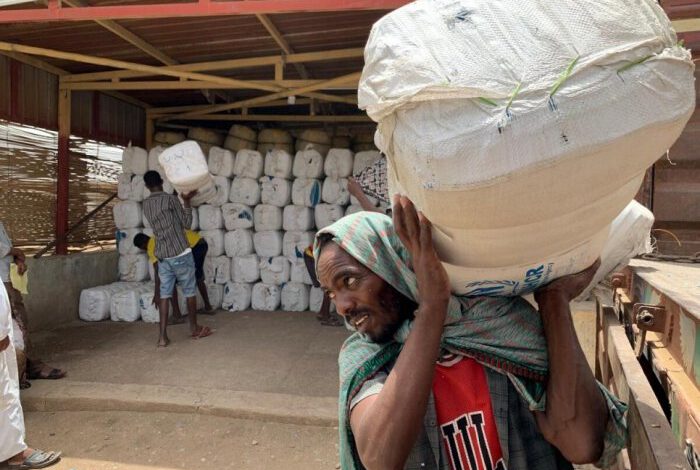
Nearly 4,000 out of 10,000 individual family tents have been damaged by strong winds, heavy rains, and hailstorms. Emergency latrines and other facilities have also been destroyed.
UNHCR, the UN Refugee Agency, and its partners are in a race against time and nature to repair and reinforce shelters and ensure that affected families have access to clean water and safe latrines with storms expected to intensify further during the rainy season, which continues from June to October.
We are replacing blankets and sleeping mats and replenishing food supplies. Distributions of 2,500 emergency shelter kits – ropes, wooden poles, and bamboo sticks – are underway to help those most impacted to reinforce their tents. A total of 10,000 emergency shelters kits are planned for distribution with an additional 5,000 in reserve.
UNHCR and partners are currently finalizing construction and rehabilitation of some 60 kilometres of roads to both Um Rakuba and Tunaydbah, which is critical to ensure access to the camps as well as to about 15 host community villages throughout the rainy season. We are also digging drainage systems in the two sites to mitigate the risks of further flooding. Partners are constructing semi-permanent schools, as well as permanent latrines and showers. However, accelerating the work is challenging because of continuing storms.
More permanent shelters called tukuls – small round huts made from mud bricks and thatch, typical of the region – are planned. But we can only start building them after the rainy season is over, when the bricks will be able to dry properly. The sudden onset of extreme weather is dramatically amplifying the risks for people forced to flee conflict and persecution, as the effects of climate change are felt disproportionately by the most vulnerable.
Last year, heavy seasonal rains caused flash floods and rivers to burst their banks, affecting hundreds of thousands of internally displaced people, refugees and host communities in Sudan.
UNHCR and 31 UN and NGO partners are calling for US$ 182 million in the recently released updated interagency appeal, an increase of US$ 33 million. The revised appeal incorporates additional funding requirements to carry out infrastructure improvements to the camps, including construction of more durable traditional shelters, and to meet the protection and basic needs of the Ethiopian refugees until the end of the year. So far 46% of the required amount has been received.
Source: UNHCR







